- Home
- Lilith Saintcrow
Redemption Alley jk-3 Page 5
Redemption Alley jk-3 Read online
Page 5
My stomach gurgled. I turned sharply on my heel, heading for the mouth of the alley. “Put the vodka on my tab, furboy. See you soon.”
“Get your garlic up to date, Jill. And eat something!” He yelled the last, but I was already gone, gathering myself to leap, one hand thudding onto the dumpster’s lid to push me up and over. My boots touched home and I hit the street, up the slope of Mayfair to where I’d parked the Impala. Along the way I stopped right outside the Episcopalian Church—ALL Welcome, its sign said, with a rainbow arching over the words to drive the point home—to use a payphone. I dropped spare change in and dialed.
“Montaigne,” he snarled.
“It’s Jill. Listen, Monty—”
“Where the hell are you?” He sounded about halfway to frantic. “There’s another disappearance on the east side. This time it’s a cop.”
My skin went cold. “Who?”
“A blue named Winchell. Just walked away from his cruiser. We found it locked on Rosales and Fifteenth. He missed his four A.M. call-in.”
I did a few swift mental calculations. That was pretty far away from Percoa, but again in a shabby clutch of industrial buildings and railyards.
Plenty of dark little holes for scurf to live in. If they had a range that big we were looking at serious trouble. “Keep everyone away from the scene. If you have people there pull them back. Stay away and set up a cordon.”
“How big?” A good lieutenant will never question a hunter. In Monty’s case, he’d known Mikhail. And he’d once screamed his lungs out while watching me take down a Trader whose bargain had included a deep, nasty hunger for human flesh—mostly sautéed, with garlic and onions. Monty had a chunk missing from his right buttock, probably the only tender part on him.
After that, there was never a quibble. Most cops are smart enough, after the obligatory orientation, to just do what I tell them. Very few dig their heels in after a brush with the nightside. And word gets passed around, by hook or by crook.
I don’t know, Monty. “Forget the cordon. I can’t answer for anyone’s safety down there. Pull everyone out. If he’s still alive, I’ll bring him to Mercy General.” If he’s still human, that is.
“Jesus Christ, Jill.” He sounded a little pale. “How bad is it?”
You don’t want to know, kid. “Nothing I can’t handle,” I lied. “See you around.”
“Jill—”
“What, Monty?” The high sharp edge of fear in my voice could be mistaken for irritation. I wasn’t known for having the best temper.
Still, he persisted. “The widow. Do you have anything, anything at all?”
What do you expect, miracles? It would do me no good to say it—I was in the business of providing miracles. “Not yet, Monty. Just hang in there.”
“Jill—”
“Got to go, Monty. Keep everyone out of the way, will you?” I hung up, dropped in another handful of change. Payphones are expensive these days, but nowhere near as expensive as replacing a cell phone, with as many times as I get shot, dumped in water, knifed, electrocuted, thrown off buildings. Pagers are slightly less expensive, and they’re harder to break most of the time.
It rang six times and the answering machine picked up, a passionless recital of the number I’d just dialed. I waited for the beep.
“Leon, it’s Jill. We’ve got scurf. Anyone you can send will be welcome. Call me, I’m dropping by my house tonight to pick up ammo. Yes, I’m up to date on my garlic. Hurry.” A terse message, but it got the job done.
I hung up, and the desire to call Saul shook me with its intensity. I pushed it away and headed for my car.
Chapter Seven
I parked behind Winchell’s black-and-white on Rosales Avenue. The patrol car was parked neatly at the curb, tires turned out toward the street and doors locked. Its shadow cut knife-sharp toward the sidewalk. It was a little after noon.
Not enough time. Still, that was no reason to be sloppy. I sat for a few moments in the Impala, listening to the engine tick as it cooled, heat shimmering up from the pavement down the road. Dry desert air keeps me from sweating much, and my internal thermostat takes care of the rest. Hunter training is good for that, conserving energy and keeping you from drowning in sweat when you’re wearing leather in the desert. With the windows rolled down I could smell sand and the river, baking stone and the effluvia of concrete canyons and human scrabble.
I could also smell the mineral tang of hosewater and a sharp whiff of cordite.
Cordite? What? I inhaled deeply, passing air through my preternaturally sharp nose. If I took off the leather cuff I could track it better.
Gooseflesh crawled up my back. Would you like the scar to start spreading, Kiss?
“He can’t do anything.” My own voice startled me. Go figure, I was talking to myself again.
But he can, Jill. If he figures out how to up the ante on this, you have no recourse except the bargain. Hellbreed aren’t known for sticking to their word.
Then I could kill him. But then I’d go back to being strictly human again, wouldn’t I.
Would I? Was it a chance worth taking?
Not yet. So shut up and get to work. I got out of the car, slammed the door, and cast an eye over the street. Deserted in the middle of the day, all it needed was a lone tumbleweed mincing down the pavement to make it a cliché. One block over I heard heavy machinery rumbling and the sound of voices, traffic in the distance, and a low moan from the trainyards stitched under every other noise, something normally only heard at night.
The scar twinged sharply, maybe because I was thinking about it. Maybe because I could still feel the scurf’s acid-drenched claws dragging through my flesh. Maybe because somewhere, Perry was thinking about me.
Worry about what you’ve got in front of you, hunter.
I approached the car, sniffed delicately. No sweet taint of corruption. Nothing except baking automobile paint and the faint fading odor of a man’s cheap cologne.
I cast around. There was another shadowed alley not fifteen steps away. I skirted the car and headed for it, my right hand easing a gun out, pulse pounding hard against the back of my throat. Adrenaline boiled copper on my palate. My coat fluttered, tattered by claws and crackling with dried blood.
The alley held nothing. Scraps of meaningless garbage, all the way back. No place for even a scurf to hide, and a locked door leading into a warehouse that didn’t move even when I applied a little pressure to it. The whiff of cordite had gone away, too.
Huh.
I slid out of the shade and into the hammerblow of southern sun again. Tested the wind direction and got another fading noseful of gunfire and something else. It was more a pheromone wash than a smell, brittle copper fear and something invisible I’d smelled before.
Death.
I tracked the flaring and fading of the scent as the wind veered, a block down and two over, turning back, zeroing in. I had to backtrack even farther to skirt the side of a falling-down building that might have held offices once.
What’s wrong with this picture, Jill?
The structure wasn’t up to code, and there was crime-scene tape over the doors. The tape was bleached and fluttering, no longer a bar to passage. The door itself had been broken in and repaired with plywood, also bleached out.
But the padlock through the hasp screwed into the plywood, holding the door shut, was so new it glittered like a diamond under the fierce light.
Huh. I touched the lock tentatively, sensitive fingertips scraping rough new-bought metal. The smell was stronger here.
I thought about it for a little bit. Then I set my heels, wrapped my hellbreed-strong right-hand fingers around the clasp, and wrenched it free of the thin plywood. I could have broken the padlock itself, but why do it the hard way?
I toed the door open and peered into darkness. Spiderwebs fluttered, and I thought of scorpions, the tattoo high up on my right thigh prickling briefly. A concrete-floored hallway vanished into gloom, and I kept my back to th
e wall as I stepped in and started working my way down.
There was no hint of scurf, but that reek of gunpowder and death called me. A hunter is trained pretty thoroughly not to make assumptions at the scene, it clouds your thinking and can bite you in the ass pretty hard.
Still, this was a disappearance on the same side of town that other people had been going missing in. A chill that had nothing to do with external temperature drifted down my back. I kept the gun low and ready, and my left hand curled around a knifehilt.
Locked doors frowned at me. None of them smelled very interesting, and they all had dust on the doorknobs that gritted under my fingers. The corner took a sharp bend—I covered it and swung around, found the walls and roof soaring away from me as the hall turned into the interior of the building proper. The lower floors had been converted to open space for something, once upon a time.
Seventeen steps in, on a concrete floor littered with slow-rotting cardboard junk, was Officer Winchell, a curly-headed tall young man in blues with a mask of bruising. Nylon rope knotted around his wrists, his arms pulled grotesquely far behind his back as he lay sprawled in the final indignity of death. A lake of congealed blood spread out from him, and the wooden chair he’d probably been tied to was overturned another four steps away, one of its legs sitting right in the still-wet-looking stain.
He’d been shot four times in the chest, close-range. His back was soaked through—hollowpoints can puncture and bleed you dry, sometimes even if you’re wearing a vest. Extremely close range, and he’d bled out under the Kevlar intended to keep him alive.
What the hell is going on here? I looked away from the body. Glanced at the hall. Someone had to have locked the door on the outside. Had Winchell let himself in over there, or had he been overpowered and dragged in? His gun was gone.
Four shots to the chest was serious business. The mask of horror that was his face was premortem, but only just. Tied to a chair, untied and shot.
Why do you assume he was tied to the chair, Jill? I examined the chair, then. There was some bloodspatter, and a hank of bloodstained nylon rope still clinging to it.
Blue and white striped nylon rope. I chewed at my lower lip, thinking it over.
Jacinta Kutchner had hung with blue and white striped nylon. Just this kind. The same kind Winchell’s hands were bound with.
A cop commits suicide, the widow gets killed and there’s this rope at the scene, and now this. This type of rope’s as common as a sneeze; they sell it in hardware stores—but to have it here in two out of three murders related to police officers? Something smells here indeed, Jill.
I was wasting daylight even looking at this. A scurf infestation would spread until burned out or contained; this was a stack of human murders with no inhuman agency I could see behind them. Not my problem, I was already stretched thin enough as it was.
But Jacinta’s body swung gently, her house creaking to itself in my memory, and Officer Winchell—I didn’t even know his first name—didn’t stare at me because his eyes had puffed closed. Someone had beat the hell out of him and shot him.
So we were looking at revenge or money, most probably. You don’t get beaten like that just because someone hates your haircut.
Sudden certainty bloomed under my breastbone like a poisonous flower. It just don’t smell right, Monty had said.
I agreed, one hundred percent.
I straightened, looked down at Winchell’s grotesquely puffed face. Noticed all at once how hot it was, and wondered why I’d smelled the cordite first and not the death. Maybe because I’ve gotten used to the smell of decay.
As used to it as you can get, that is.
Daylight’s wasting, Jill. Call this in to Homicide and have a word with Piper when you can. Get your ass in gear.
But first, I stood gazing down at Winchell. The lump curdled in my throat. Nobody should have to die like this. Or like Kutchner’s widow.
My voice startled me, breaking the eerie quiet over the sound of freight trains and traffic in the distance. “Monty’s called me in, Winchell. You tell Jacinta I’m on the job.” I paused. “You can let Marv Kutchner know too.”
Then I headed out into the daylight to look for a phone.
Chapter Eight
Galina looks like a film star from the thirties. Her sleek dark hair is marcel-waved, and her cat-tilted green eyes, set in a pale face, would have been worth a lot of hope in Garbo’s Hollywood. Each All Hallows Eve I want to buy her a flapper’s dress and an ostrich feather, but I never get around to it.
Besides, she’d probably take offense. You never can tell, with a Sanctuary. They’ve got some funny ideas.
She pushed the plunger down and pulled the needle free, tamping a cotton ball down and taping it with deft motions. “You’re already up on your garlic, but a little more won’t kill you.” Her rain-gray skirt whispered as she turned away, laying the tape down.
I leapt to my feet and swung my chickenwing-bent arm. Garlic serum burns like hell. “Jesus. Christ. Hurts.”
Her snort was unsympathetic. The Sanctuary snapped the point off the needle deftly in a pint-sized biohazard container and scooped up the tray. Sunlight veered through the skylights and burnished her kitchen table. She lived upstairs over her shop, just a regular garden-variety occult store unless you know what you’re about. Then you realize you could find just about everything a serious practitioner of sorcery needs—and practically everything a Were or witch might need, as well—in her little store. “Well, if you’d prefer getting all slimy and bloodhungry…”
“It might be an improvement.” I sighed as the burn settled down, spreading up my arm. “I should stock up on ammo.” I want all the goddamn ammo I can carry if we’ve got scurf. And a few more hours in the day would be nice. Monty was probably climbing the walls by now, I’d phoned in the location of the body and not much else.
“Again?” But she didn’t demur. “Hang on, I’ll fetch it. Will it be on account? I can spot you a few hundred.”
“No, I’ve got it. Business has been good lately.” Hunters get backstairs funding, both from the city and county; it’s a small price to pay for most municipal or county administrations. We also get federal funding if a paranormal incident is big enough to qualify, or if it crosses state lines.
“Defense spending” isn’t only for mundane threats.
Plus, the Church subsidizes training no few apprentices. Even if they do bar us from Heaven, they try to make sure we’re funded enough to hold back the tide of Hell. We’re usually overworked and just-barely-paid-enough, but that’s better than nothing. Resident hunters don’t need to worry about rent or their next meal, thank God.
We just have to worry about damnation.
And being psychic has its perks when it comes to investing. Mikhail had done very well for himself. Screw that “not using your powers for personal gain” bit. When you’re getting shot, knifed, electrocuted, strangled, dumped in rivers, thrown off buildings, or almost eviscerated protecting the common citizenry, the least the world can do is give you a break or two on the stock market.
Of course, living long enough to claim a retirement fund is the problem.
“Are you going to keep the Glocks or switch to something else?” She paused, the sun shining off her lacquered hair.
I have regular Glocks, not the smaller ones most female cops use. My wrists look small, but hellbreed strength means I can handle the recoil better than most men. One of the best days of my life was switching to bigger guns. “I’ll stick with the Glocks. But fill me up on hollowpoints and the silver-grain armor-piercing rounds. I want to be nastier than usual.”
She nodded, tilted her head as the bell jingled downstairs. “Were,” she said shortly, and vanished.
Coming to take me to the dance. I picked up my shredded coat and shrugged into it. The walls quivered slightly, the Sanctuary binding responding to my nervousness and Galina’s as well. Inside their little houses Sancs are the law; the price they pay is being more vulnerab
le outside than even a weak untrained psychic. But they usually fix it so they don’t have to go outside much—and hunters and Weres, not to mention most hellbreed, will beat the tar out of anyone hassling a Sanctuary. Neutral supply of necessities is the least of the services they provide.
I gauged the fall of sunlight and glanced at the kitchen clock—Elvis in a red jacket, his hips swaying regularly. The days were long, but still, every hour of sunlight gone heightened the possibility of a nightfight with scurf.
Enough to give any hunter shivers. If I wasn’t already halfway to twitched-out between tripping over dead cops and getting shot full of garlic.
The scar throbbed. I reached over, fingers trembling, and stripped the leather cuff off my right wrist. Stared down at the band of paler-even-than-my-usual-milk skin.
On our too-short honeymoon I’d left the cuff off, and I’d even gotten a bit of a tan. For all a hunter’s sun-worship, I stay out too much at night to be anything but fishbelly. I was back to putting the cuff on when I didn’t want to be distracted by the wash of sensory acuity.
Air hit my skin with a thousand sharp needles, suddenly alive again. My nose tingled, picking up the reek of garlic, silver, the dry smell of herbs hung in the large pantry, wet earth from the greenhouse on the roof. Fur and cologne that was a Were downstairs, Galina’s perfume, the incense and Power of her shop.
I examined the lip-print. It wasn’t any bigger. It was just the same as it had always been, and when I tipped it up into the sunlight uncomfortable, allergic warmth spilled up my arm.
Goddamn you, Perry. Getting into my head again. Worming his way in.
My exhaled breath stirred the leaves of small potted herbs growing in the windowsill, under a double drench of light. Air conditioning sent a cool draft across my shoulders. I’d have to change into my first spare and place another order with Jingo out on Cortada Street for another two or three custom jobs.
They don’t sew ammo-loops into regular leather trenches, you know. And I don’t have time anymore for sewing, if I ever did.

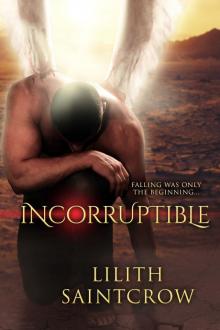 Incorruptible
Incorruptible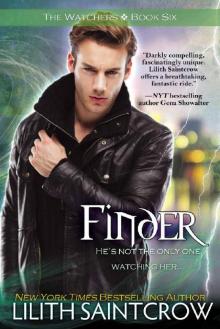 Finder (The Watchers Book 6)
Finder (The Watchers Book 6)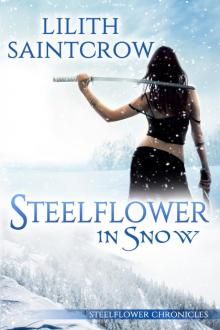 Steelflower in Snow
Steelflower in Snow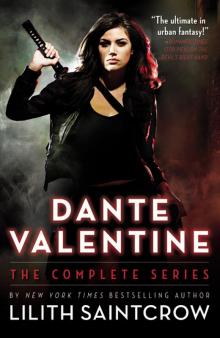 Dante Valentine
Dante Valentine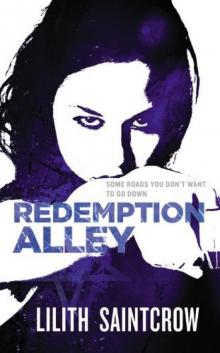 Redemption Alley-Jill Kismet 3
Redemption Alley-Jill Kismet 3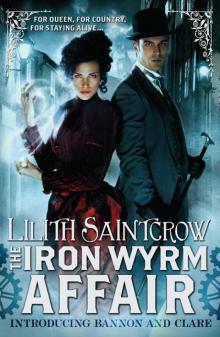 The Iron Wyrm Affair
The Iron Wyrm Affair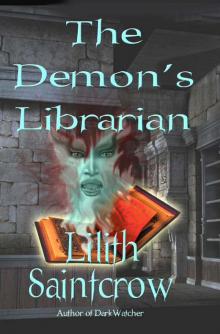 The Demon's Librarian
The Demon's Librarian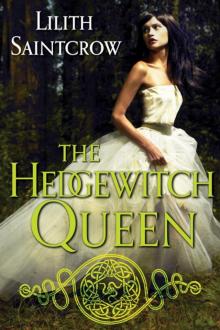 The Hedgewitch Queen
The Hedgewitch Queen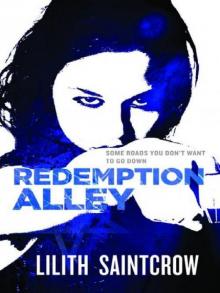 Redemption Alley
Redemption Alley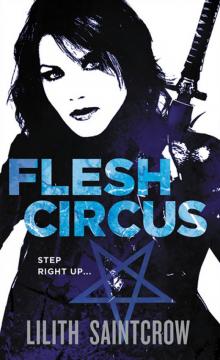 Flesh Circus
Flesh Circus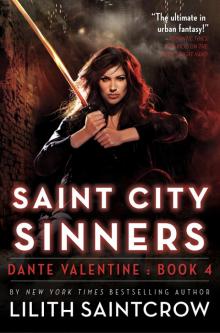 Saint City Sinners
Saint City Sinners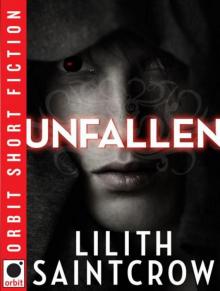 Unfallen
Unfallen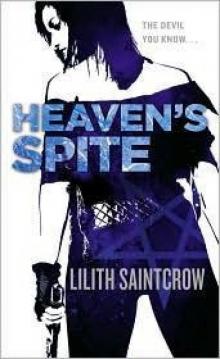 Heaven’s Spite
Heaven’s Spite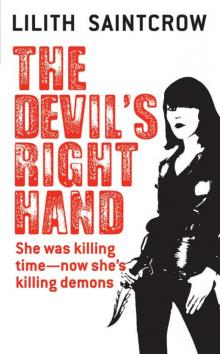 The Devil s Right Hand
The Devil s Right Hand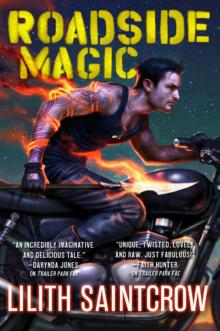 Roadside Magic
Roadside Magic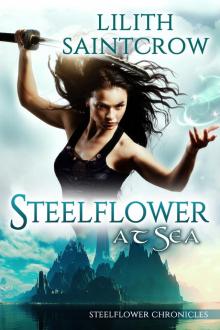 Steelflower at Sea
Steelflower at Sea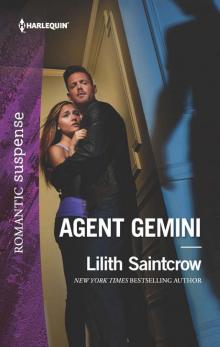 Agent Gemini
Agent Gemini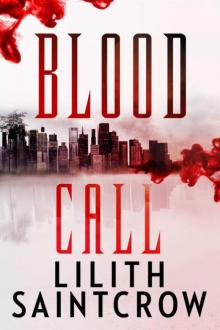 Blood Call
Blood Call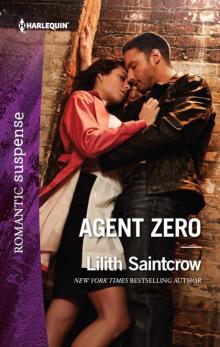 Agent Zero
Agent Zero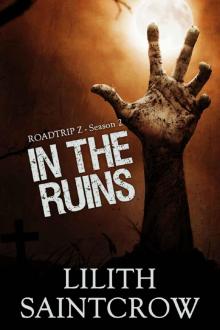 In The Ruins
In The Ruins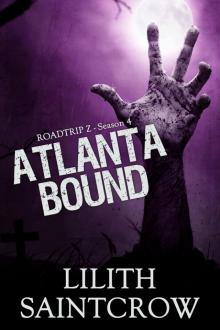 Atlanta Bound
Atlanta Bound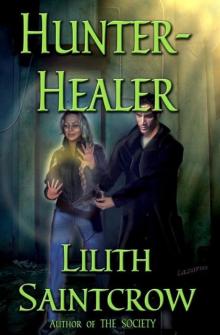 Hunter, Healer
Hunter, Healer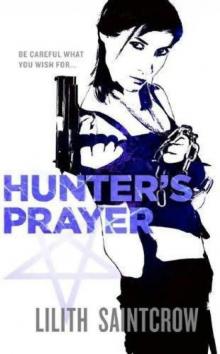 Hunter's Prayer
Hunter's Prayer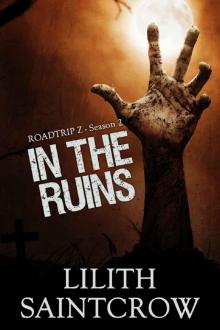 Roadtrip Z_Season 2_In The Ruins
Roadtrip Z_Season 2_In The Ruins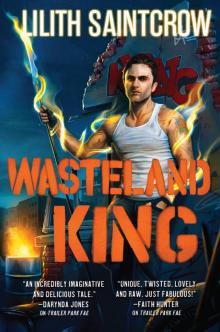 Wasteland King
Wasteland King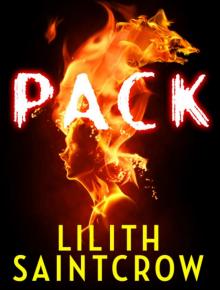 Pack
Pack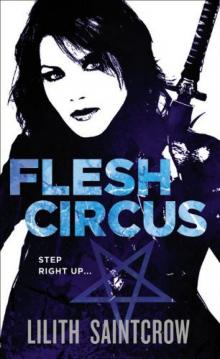 Flesh Circus - 4
Flesh Circus - 4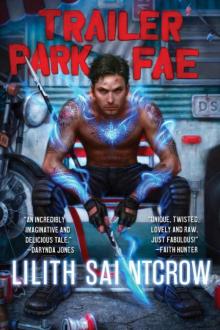 Trailer Park Fae
Trailer Park Fae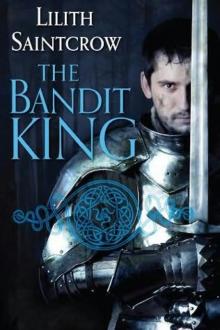 The Bandit King h-2
The Bandit King h-2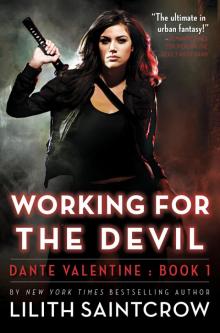 Working for the Devil
Working for the Devil Pocalypse Road
Pocalypse Road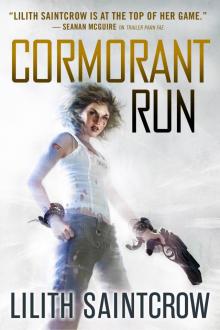 Cormorant Run
Cormorant Run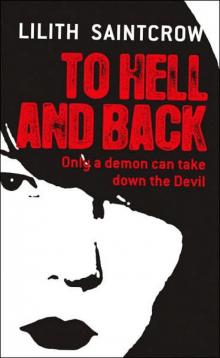 Dante Valentine Book 5 - To Hell and Back
Dante Valentine Book 5 - To Hell and Back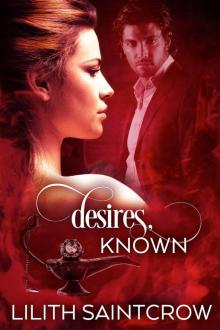 Desires, Known
Desires, Known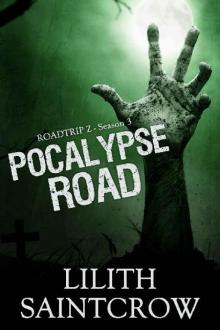 Roadtrip Z (Season 3): Pocalypse Road
Roadtrip Z (Season 3): Pocalypse Road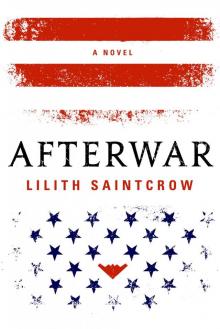 Afterwar
Afterwar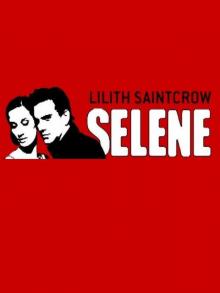 Selene
Selene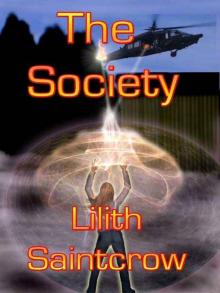 The Society
The Society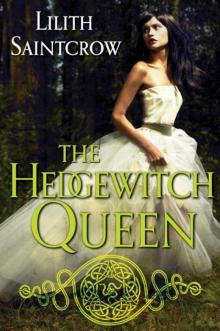 The Hedgewitch Queen h-1
The Hedgewitch Queen h-1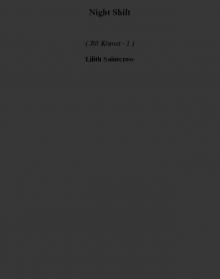 Night Shift jk-1
Night Shift jk-1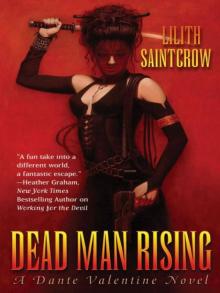 Dead Man Rising
Dead Man Rising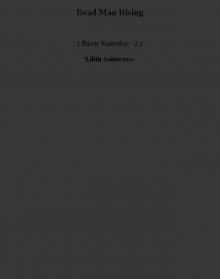 Dead Man Rising dv-2
Dead Man Rising dv-2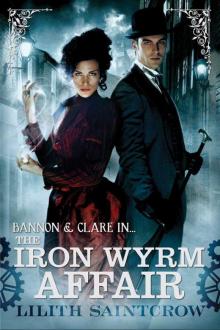 The Iron Wyrm Affair: Bannon and Clare: Book 1
The Iron Wyrm Affair: Bannon and Clare: Book 1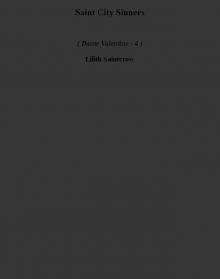 Saint City Sinners dv-4
Saint City Sinners dv-4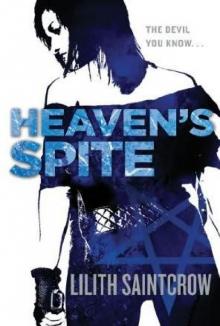 Heaven's Spite jk-5
Heaven's Spite jk-5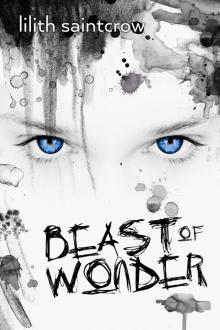 Beast of Wonder
Beast of Wonder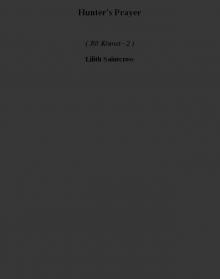 Hunter's Prayer jk-2
Hunter's Prayer jk-2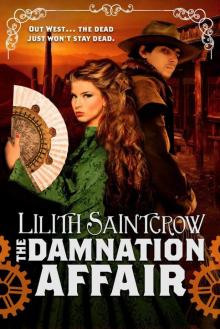 The Damnation Affair
The Damnation Affair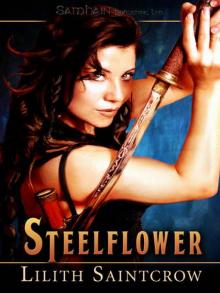 Steelflower
Steelflower The Red Plague Affair: Bannon & Clare: Book Two
The Red Plague Affair: Bannon & Clare: Book Two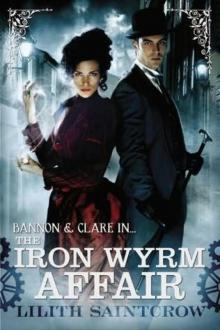 The Iron Wyrm Affair tb&ca-1
The Iron Wyrm Affair tb&ca-1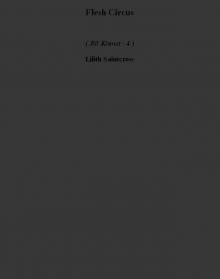 Flesh Circus jk-4
Flesh Circus jk-4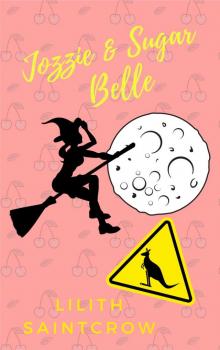 Jozzie & Sugar Belle
Jozzie & Sugar Belle Night Shift
Night Shift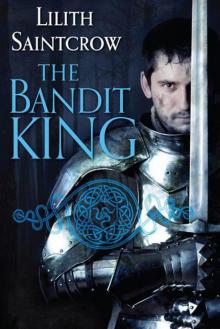 The Bandit King
The Bandit King![Hunter, Healer [Sequel to The Society] Read online](http://i1.bookreadfree.com/i1/04/05/hunter_healer_[sequel_to_the_society]_preview.jpg) Hunter, Healer [Sequel to The Society]
Hunter, Healer [Sequel to The Society]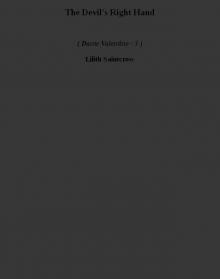 The Devil's Right Hand dv-3
The Devil's Right Hand dv-3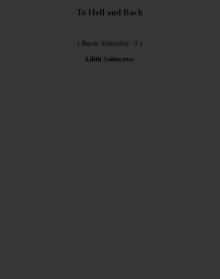 To Hell and Back dv-5
To Hell and Back dv-5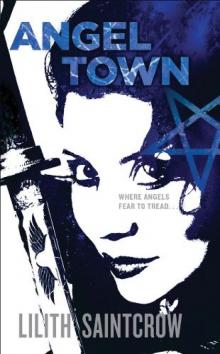 Angel Town
Angel Town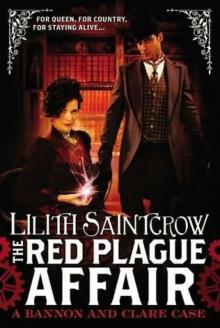 The Red Plague Affair tb&ca-2
The Red Plague Affair tb&ca-2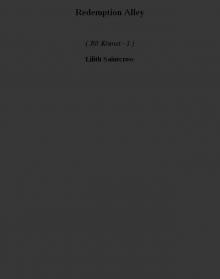 Redemption Alley jk-3
Redemption Alley jk-3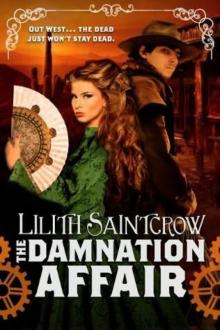 The Damnation Affair (the bannon & clare affairs)
The Damnation Affair (the bannon & clare affairs)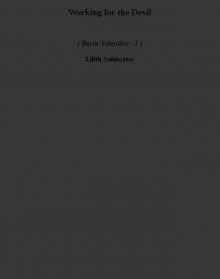 Working for the Devil dv-1
Working for the Devil dv-1